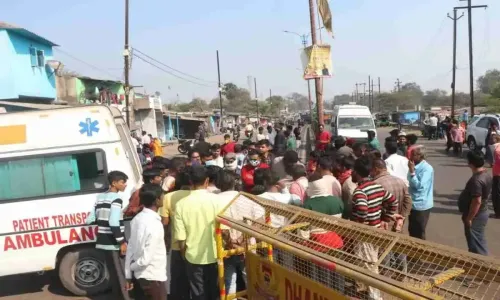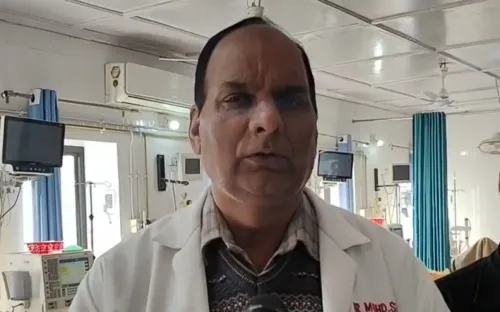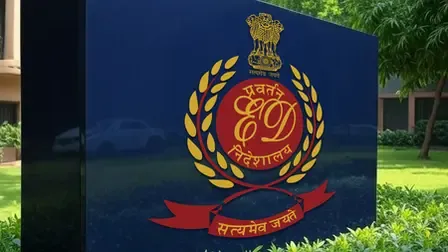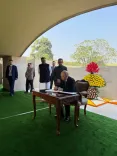Is the WHO Advocating for Maternal Vaccines and Monoclonal Antibodies to Shield Babies from RSV?
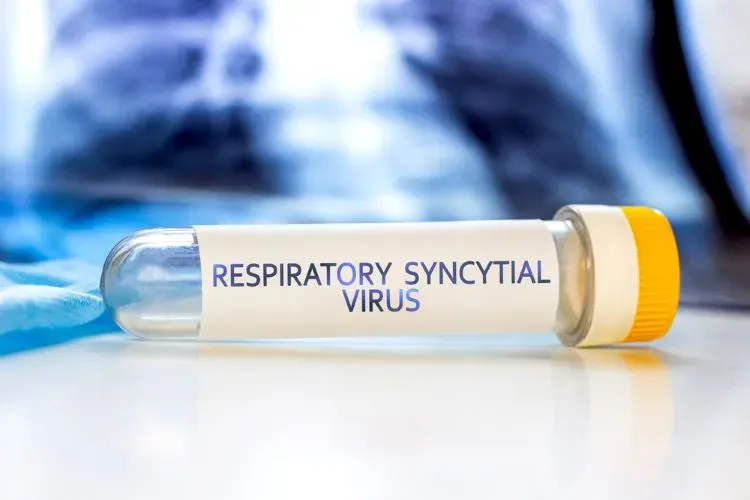
Synopsis
Key Takeaways
- Maternal vaccine and monoclonal antibody recommended for RSV protection.
- RSVpreF is for pregnant women; nirsevimab for newborns.
- RSV causes 100,000 deaths annually in children under five.
- Most RSV deaths occur in low- and middle-income countries.
- Administration during pregnancy and at birth is crucial.
New Delhi, May 30 (NationPress) - The World Health Organization (WHO) has urged all nations to adopt both a maternal vaccine and a monoclonal antibody as protective measures against the respiratory syncytial virus (RSV), which is the primary cause of acute lower respiratory infections in children worldwide.
The maternal vaccine, known as RSVpreF, is recommended for pregnant women during their third trimester to offer protection to their newborns, while the long-lasting monoclonal antibody, nirsevimab, can be administered to infants from birth, ideally before or during the RSV season, according to the guidelines published in the Weekly Epidemiological Record (WER).
The WHO highlighted that RSV results in approximately 100,000 deaths and over 3.6 million hospitalizations annually among children under the age of five globally, with around half of these fatalities occurring in infants less than six months old.
The organization pointed out that the overwhelming majority (97 percent) of RSV-related deaths in infants take place in low- and middle-income countries, where access to essential medical care, such as oxygen and hydration, is limited.
Despite causing mild symptoms akin to the common cold, including a runny nose, cough, and fever, RSV can lead to severe complications such as pneumonia and bronchiolitis, especially in infants, young children, older adults, and individuals with weakened immune systems or preexisting health issues.
Both RSVpreF and nirsevimab were endorsed for global use by the Strategic Advisory Group of Experts on Immunisation (SAGE) in September 2024. Furthermore, the maternal vaccine achieved WHO prequalification in March 2025, allowing UN agencies to procure it.
The maternal vaccine can be administered during standard antenatal visits, while nirsevimab is given as a single injection that begins to safeguard infants against RSV within a week and remains effective for at least five months, covering the entire RSV season in countries with a defined RSV season.
The WHO advises that infants should receive a single dose of nirsevimab immediately after birth or before leaving the hospital. If not given at birth, the monoclonal antibody can be administered during the baby's initial health visit.
In instances where a country opts to administer the treatment solely during the RSV season, a single dose may also be given to older infants just before they enter their first RSV season, the WHO noted.
Administering the monoclonal antibody to infants under six months will yield the most significant reduction in severe RSV disease, although there are still potential benefits for infants up to twelve months old.
“RSV is a highly infectious virus that affects individuals of all ages, but it poses the greatest threat to infants, especially those born prematurely, who are at the highest risk for severe illness,” stated Dr. Kate O’Brien, Director of Immunisation, Vaccines, and Biologicals at the WHO.
“The WHO-endorsed RSV immunization products have the potential to significantly alter the battle against severe RSV disease, substantially reduce hospitalizations and fatalities, and ultimately save many infants' lives globally,” Dr. O’Brien added.



